2024-07 Mailing Available
The 2024-07 mailing of new standards papers is now available.
| WG21 Number | Title | Author | Document Date | Mailing Date | Previous Version | Subgroup |
|---|---|---|---|---|---|---|
| N4984 | WG21 June 2024 Admin Minutes of Meeting | Nina Ranns | 2024-06-17 | 2024-07 | All of WG21 | |
| N4985 | WG21 2024-06 St Louis Minutes of Meeting | Nina Ranns | 2024-07-11 | 2024-07 | All of WG21 | |
| N4986 | Working Draft, Programming Languages -- C++ | Thomas Köppe | 2024-07-16 | 2024-07 | All of WG21 | |
| N4987 | Editors' Report, Programming Languages -- C++ | Thomas Köppe | 2024-07-16 | 2024-07 | All of WG21 | |
| P0260R10 | C++ Concurrent Queues | Detlef Vollmann | 2024-06-27 | 2024-07 | P0260R9 | LEWG Library Evolution |
| P0472R1 | Put std::monostate in <utility> | David Sankel | 2024-06-05 | 2024-07 | P0472R0 | LEWG Library Evolution |
| P0843R13 | inplace_vector | Gonzalo Brito Gadeschi | 2024-06-17 | 2024-07 | P0843R12 | LEWG Library Evolution,LWG Library |
| P0843R14 | inplace_vector | Gonzalo Brito Gadeschi | 2024-06-26 | 2024-07 | P0843R13 | LWG Library |
| P0876R17 | fiber_context - fibers without scheduler | Oliver Kowalke | 2024-07-03 | 2024-07 | P0876R16 | EWG Evolution,CWG Core,LWG Library |
| P0963R3 | Structured binding declaration as a condition | Zhihao Yuan | 2024-06-28 | 2024-07 | P0963R2 | CWG Core |
| P1928R10 | std::simd - Merge data-parallel types from the Parallelism TS 2 | Matthias Kretz | 2024-06-28 | 2024-07 | P1928R9 | LWG Library |
| P1928R11 | std::simd - Merge data-parallel types from the Parallelism TS 2 | Matthias Kretz | 2024-07-16 | 2024-07 | P1928R10 | LWG Library |
| P2075R6 | Philox as an extension of the C++ RNG engines | Ilya Burylov | 2024-06-28 | 2024-07 | P2075R5 | LWG Library |
| P2300R10 | `std::execution` | Eric Niebler | 2024-06-28 | 2024-07 | P2300R9 | LEWG Library Evolution,LWG Library |
| P2319R0 | Prevent path presentation problems | Victor Zverovich | 2024-07-06 | 2024-07 | SG16 Unicode | |
| P2389R2 | `dextents` Index Type Parameter | Bryce Adelstein Lelbach | 2024-06-24 | 2024-07 | P2389R1 | LEWG Library Evolution |
| P2422R1 | Remove nodiscard annotations from the standard library specification | Ville Voutilainen | 2024-06-28 | 2024-07 | P2422R0 | LEWG Library Evolution,LWG Library |
| P2642R6 | Padded mdspan layouts | Christian Trott | 2024-06-18 | 2024-07 | P2642R5 | LEWG Library Evolution,LWG Library |
| P2656R3 | C++ Ecosystem International Standard | René Ferdinand Rivera Morell | 2024-07-11 | 2024-07 | P2656R2 | EWG Evolution,LEWG Library Evolution |
| P2664R7 | Proposal to extend std::simd with permutation API | Daniel Towner | 2024-06-25 | 2024-07 | P2664R6 | SG1 Concurrency and Parallelism,LEWG Library Evolution |
| P2686R4 | constexpr structured bindings and references to constexpr variables | Corentin Jabot | 2024-07-05 | 2024-07 | P2686R3 | EWG Evolution,LEWG Library Evolution,CWG Core |
| P2761R2 | Slides: Evaluating structured binding as a condition (P0963R2 presentation) | Zhihao Yuan | 2024-06-13 | 2024-07 | P2761R1 | EWG Evolution |
| P2761R3 | Slides: Structured binding declaration as a condition (P0963R2 presentation) | Zhihao Yuan | 2024-06-26 | 2024-07 | P2761R2 | EWG Evolution |
| P2769R2 | get_element customization point object | Ruslan Arutyunyan | 2024-06-25 | 2024-07 | P2769R1 | SG9 Ranges,LEWG Library Evolution |
| P2848R1 | std::is_uniqued | Arthur O'Dwyer | 2024-07-14 | 2024-07 | P2848R0 | LEWG Library Evolution |
| P2863R6 | Review Annex D for C++26 | Alisdair Meredith | 2024-06-23 | 2024-07 | P2863R5 | EWG Evolution,LEWG Library Evolution |
| P2863R7 | Review Annex D for C++26 | Alisdair Meredith | 2024-07-09 | 2024-07 | P2863R6 | SG22 Compatibility,EWG Evolution,LEWG Library Evolution |
| P2865R5 | Remove Deprecated Array Comparisons from C++26 | Alisdair Meredith | 2024-07-09 | 2024-07 | P2865R4 | SG22 Compatibility |
| P2866R3 | Remove Deprecated Volatile Features From C++26 | Alisdair Meredith | 2024-06-28 | 2024-07 | P2866R2 | CWG Core,LWG Library |
| P2866R4 | Remove Deprecated Volatile Features From C++26 | Alisdair Meredith | 2024-07-15 | 2024-07 | P2866R3 | SG22 Compatibility,CWG Core,LWG Library |
| P2873R2 | Remove Deprecated locale category facets for Unicode from C++26 | Alisdair Meredith | 2024-07-06 | 2024-07 | P2873R1 | LEWG Library Evolution |
| P2897R2 | aligned_accessor: An mdspan accessor expressing pointer overalignment | Mark Hoemmen | 2024-07-12 | 2024-07 | P2897R1 | LEWG Library Evolution |
| P2897R3 | aligned_accessor: An mdspan accessor expressing pointer overalignment | Mark Hoemmen | 2024-07-15 | 2024-07 | P2897R2 | LEWG Library Evolution,LWG Library |
| P2963R3 | Ordering of constraints involving fold expressions | Corentin Jabot | 2024-06-28 | 2024-07 | P2963R2 | CWG Core |
| P2989R2 | A Simple Approach to Universal Template Parameters | Corentin Jabot | 2024-06-16 | 2024-07 | P2989R1 | EWG Evolution |
| P2996R4 | Reflection for C++26 | Barry Revzin | 2024-06-26 | 2024-07 | P2996R3 | EWG Evolution |
| P3006R1 | Launder less | Antony Polukhin | 2024-07-11 | 2024-07 | P3006R0 | SG12 Undefined and Unspecified Behavior,EWG Evolution,CWG Core |
| P3037R2 | constexpr std::shared_ptr | Paul Keir | 2024-05-24 | 2024-07 | P3037R1 | LEWG Library Evolution |
| P3044R1 | sub-string_view from string | Michael Florian Hava | 2024-07-15 | 2024-07 | P3044R0 | LEWG Library Evolution |
| P3051R2 | Structured Response Files | René Ferdinand Rivera Morell | 2024-07-11 | 2024-07 | P3051R1 | EWG Evolution,LEWG Library Evolution |
| P3064R2 | How to Avoid OOTA Without Really Trying | Paul E. McKenney | 2024-07-12 | 2024-07 | P3064R1 | SG1 Concurrency and Parallelism |
| P3068R3 | Allowing exception throwing in constant-evaluation | Hana Dusíková | 2024-06-27 | 2024-07 | P3068R2 | EWG Evolution,LEWG Library Evolution |
| P3085R3 | `noexcept` policy for SD-9 (throws nothing) | Ben Craig | 2024-07-04 | 2024-07 | P3085R2 | LEWG Library Evolution |
| P3087R1 | Make direct-initialization for enumeration types at least as permissive as direct-list-initializatio | Jan Schultke | 2024-05-29 | 2024-07 | P3087R0 | EWG Evolution |
| P3094R3 | std::basic_fixed_string | Mateusz Pusz | 2024-06-30 | 2024-07 | P3094R2 | SG16 Unicode,LEWG Library Evolution |
| P3096R2 | Function Parameter Reflection in Reflection for C++26 | Adam Lach | 2024-07-16 | 2024-07 | P3096R1 | EWG Evolution,LEWG Library Evolution |
| P3124R0 | 2024-02 Library Evolution Poll Outcomes | 2024-06-14 | 2024-07 | LEWG Library Evolution | ||
| P3137R2 | views::to_input | Tim Song | 2024-07-16 | 2024-07 | P3137R1 | LEWG Library Evolution |
| P3138R2 | views::cache_last | Tim Song | 2024-07-16 | 2024-07 | P3138R1 | LEWG Library Evolution |
| P3144R1 | Deprecate Delete of Incomplete Class Type | Alisdair Meredith | 2024-05-23 | 2024-07 | P3144R0 | CWG Core |
| P3144R2 | Deleting a Pointer to an Incomplete Type Should be Ill-formed | Alisdair Meredith | 2024-06-25 | 2024-07 | P3144R1 | CWG Core |
| P3149R4 | async_scope -- Creating scopes for non-sequential concurrency | Ian Petersen | 2024-06-23 | 2024-07 | P3149R3 | SG1 Concurrency and Parallelism,LEWG Library Evolution |
| P3149R5 | async_scope -- Creating scopes for non-sequential concurrency | Ian Petersen | 2024-06-25 | 2024-07 | P3149R4 | LEWG Library Evolution |
| P3161R2 | Unified integer overflow arithmetic | Tiago Freire | 2024-07-15 | 2024-07 | P3161R1 | SG6 Numerics |
| P3164R1 | Improving diagnostics for sender expressions | Eric Niebler | 2024-06-15 | 2024-07 | P3164R0 | LEWG Library Evolution |
| P3164R2 | Improving diagnostics for sender expressions | Eric Niebler | 2024-06-24 | 2024-07 | P3164R1 | LEWG Library Evolution |
| P3168R2 | Give std::optional Range Support | David Sankel | 2024-06-25 | 2024-07 | P3168R1 | LEWG Library Evolution |
| P3175R3 | Reconsidering the `std::execution::on` algorithm | Eric Niebler | 2024-06-24 | 2024-07 | P3175R2 | LEWG Library Evolution |
| P3178R0 | Retrieval of Exception Information | TPK Healy | 2024-05-23 | 2024-07 | LEWGI SG18: LEWG Incubator | |
| P3178R1 | Retrieval of Exception Information | TPK Healy | 2024-05-30 | 2024-07 | P3178R0 | LEWGI SG18: LEWG Incubator |
| P3179R2 | C++ parallel range algorithms | Ruslan Arutyunyan | 2024-06-25 | 2024-07 | P3179R1 | SG1 Concurrency and Parallelism,SG9 Ranges |
| P3182R1 | Add container pop methods that return the popped value | Brian Bi | 2024-07-16 | 2024-07 | P3182R0 | LEWG Library Evolution |
| P3212R0 | The contract of sort() | Andrzej Krzemieński | 2024-07-03 | 2024-07 | SG21 Contracts,EWG Evolution,LEWG Library Evolution | |
| P3223R1 | Making std::istream::ignore less surprising | Jonathan Wakely | 2024-07-03 | 2024-07 | P3223R0 | LEWG Library Evolution |
| P3235R1 | std::print more types faster with less memory | Victor Zverovich | 2024-06-15 | 2024-07 | P3235R0 | LEWG Library Evolution |
| P3235R2 | std::print more types faster with less memory | Victor Zverovich | 2024-06-25 | 2024-07 | P3235R1 | LWG Library |
| P3235R3 | std::print more types faster with less memory | Victor Zverovich | 2024-06-26 | 2024-07 | P3235R2 | LWG Library |
| P3245R1 | Allow `[[nodiscard]]` in type alias declarations | Xavier Bonaventura | 2024-07-15 | 2024-07 | P3245R0 | EWGI SG17: EWG Incubator |
| P3248R1 | Require [u]intptr_t | Gonzalo Brito Gadeschi | 2024-06-16 | 2024-07 | P3248R0 | SG1 Concurrency and Parallelism,SG22 Compatibility,EWG Evolution,LEWG Library Evolution |
| P3255R1 | Expose whether atomic notifying operations are lock-free | Brian Bi | 2024-07-16 | 2024-07 | P3255R0 | LEWG Library Evolution |
| P3265R2 | Ship Contracts in a TS | Ville Voutilainen | 2024-05-27 | 2024-07 | P3265R1 | EWG Evolution |
| P3265R3 | Ship Contracts in a TS | Ville Voutilainen | 2024-05-28 | 2024-07 | P3265R2 | EWG Evolution |
| P3288R1 | std::elide | Thomas P. K. Healy | 2024-05-28 | 2024-07 | P3288R0 | EWGI SG17: EWG Incubator,LEWGI SG18: LEWG Incubator |
| P3288R2 | std::elide | Thomas P. K. Healy | 2024-05-29 | 2024-07 | P3288R1 | EWGI SG17: EWG Incubator,LEWGI SG18: LEWG Incubator |
| P3288R3 | std::elide | Thomas P. K. Healy | 2024-06-27 | 2024-07 | P3288R2 | EWGI SG17: EWG Incubator,LEWGI SG18: LEWG Incubator |
| P3290R1 | Integrating Existing Assertions With Contracts | Joshua Berne | 2024-07-12 | 2024-07 | P3290R0 | SG21 Contracts,EWG Evolution |
| P3294R1 | Code Injection with Token Sequences | Barry Revzin | 2024-07-16 | 2024-07 | P3294R0 | SG7 Reflection,EWG Evolution |
| P3296R1 | let_with_async_scope | Anthony Williams | 2024-06-24 | 2024-07 | P3296R0 | SG1 Concurrency and Parallelism,LEWG Library Evolution |
| P3297R1 | C++26 Needs Contract Checking | Ryan McDougall | 2024-06-21 | 2024-07 | P3297R0 | SG21 Contracts,SG23 Safety and Security,EWG Evolution |
| P3303R1 | Fixing Lazy Sender Algorithm Customization | Eric Niebler | 2024-06-24 | 2024-07 | P3303R0 | LEWG Library Evolution |
| P3309R1 | constexpr atomic and atomic_ref | Hana Dusíková | 2024-07-14 | 2024-07 | P3309R0 | LEWG Library Evolution |
| P3310R1 | Solving partial ordering issues introduced by P0522R0 | Matheus Izvekov | 2024-06-21 | 2024-07 | P3310R0 | EWG Evolution,CWG Core |
| P3310R2 | Solving partial ordering issues introduced by P0522R0 | Matheus Izvekov | 2024-06-21 | 2024-07 | P3310R1 | EWG Evolution,CWG Core |
| P3314R0 | 2024-07 Library Evolution Polls | Inbal Levi | 2024-07-16 | 2024-07 | LEWG Library Evolution | |
| P3319R1 | Add an iota object for simd (and more) | Matthias Kretz | 2024-06-28 | 2024-07 | P3319R0 | LEWG Library Evolution |
| P3321R0 | Contracts Interaction With Tooling | Joshua Berne | 2024-07-12 | 2024-07 | SG15 Tooling,SG21 Contracts,EWG Evolution | |
| P3323R0 | cv-qualified types in atomic and atomic_ref | Gonzalo Brito Gadeschi | 2024-06-16 | 2024-07 | SG1 Concurrency and Parallelism | |
| P3325R0 | A Utility for Creating Execution Environments | Eric Niebler | 2024-06-13 | 2024-07 | LEWG Library Evolution | |
| P3325R1 | A Utility for Creating Execution Environments | Eric Niebler | 2024-07-13 | 2024-07 | P3325R0 | LEWG Library Evolution |
| P3325R2 | A Utility for Creating Execution Environments | Eric Niebler | 2024-07-16 | 2024-07 | P3325R1 | LEWG Library Evolution |
| P3326R0 | favor ease of use | Jarrad J. Waterloo | 2024-06-13 | 2024-07 | LEWG Library Evolution | |
| P3328R0 | Observable Checkpoints During Contract Evaluation | Joshua Berne | 2024-06-13 | 2024-07 | SG21 Contracts | |
| P3330R0 | User-defined Atomic Read-Modify-Write Operations | Gonzalo Brito | 2024-06-17 | 2024-07 | SG1 Concurrency and Parallelism | |
| P3331R0 | Accessing The First and Last Elements in Associative Containers | Nikita Sakharin | 2024-06-18 | 2024-07 | LEWGI SG18: LEWG Incubator,LEWG Library Evolution,LWG Library | |
| P3332R0 | A simpler notation for PM | Bjarne Stroustrup | 2024-06-18 | 2024-07 | EWG Evolution | |
| P3335R0 | Structured Core Options | René Ferdinand Rivera Morell | 2024-07-11 | 2024-07 | SG15 Tooling | |
| P3336R0 | Usage Experience for Contracts with BDE | Joshua Berne | 2024-06-23 | 2024-07 | SG21 Contracts,EWG Evolution | |
| P3338R0 | Observe and ignore semantics in constant evaluation | Ville Voutilainen | 2024-06-23 | 2024-07 | EWG Evolution | |
| P3339R0 | C++ Ecosystem IS Open License | René Ferdinand Rivera Morell | 2024-06-23 | 2024-07 | All of WG21 | |
| P3340R0 | A Consistent Grammar for Sequences | Alisdair Meredith | 2024-06-24 | 2024-07 | CWG Core | |
| P3341R0 | C++ Standard Library Ready Issues to be moved in St Louis, Jun. 2024 | Jonathan Wakely | 2024-06-24 | 2024-07 | All of WG21 | |
| P3342R0 | Working Draft, Standard for C++ Ecosystem | René Ferdinand Rivera Morell | 2024-07-11 | 2024-07 | EWG Evolution,LEWG Library Evolution | |
| P3343R0 | Contracts - What are we doing here (EWG Presentation) | Joshua Berne | 2024-06-25 | 2024-07 | EWG Evolution | |
| P3344R0 | Virtual Functions on Contracts (EWG - Presentation for P3097) | Joshua Berne | 2024-06-28 | 2024-07 | EWG Evolution | |
| P3345R0 | Core Language Working Group "ready" Issues for the June, 2024 meeting | Jens Maurer | 2024-06-28 | 2024-07 | CWG Core | |
| P3351R0 | views::scan | Yihe Li | 2024-07-08 | 2024-07 | SG9 Ranges | |
| P3354R0 | Slides for P3233R0 | Giuseppe D'Angelo | 2024-07-09 | 2024-07 | SG12 Undefined and Unspecified Behavior,EWG Evolution | |
| P3355R0 | Fix submdspan for C++26 | Mark Hoemmen | 2024-07-14 | 2024-07 | LEWG Library Evolution | |
| P3356R0 | non_invalidating_vector | Jarrad J Waterloo | 2024-07-13 | 2024-07 | LEWGI SG18: LEWG Incubator,LEWG Library Evolution | |
| P3357R0 | NRVO with factory and after_factory | TPK Healy | 2024-07-15 | 2024-07 | EWGI SG17: EWG Incubator,LEWGI SG18: LEWG Incubator | |
| P3358R0 | SARIF for Structured Diagnostics | Sy Brand | 2024-07-16 | 2024-07 | SG15 Tooling | |
| P3359R0 | Slides for P3298R0 - Implicit conversion functions | Bengt Gustafsson | 2024-07-15 | 2024-07 | EWGI SG17: EWG Incubator,EWG Evolution | |
| P3360R0 | Slides for P3312R0 - Overload Set Types | Bengt Gustafsson | 2024-07-15 | 2024-07 | EWGI SG17: EWG Incubator |

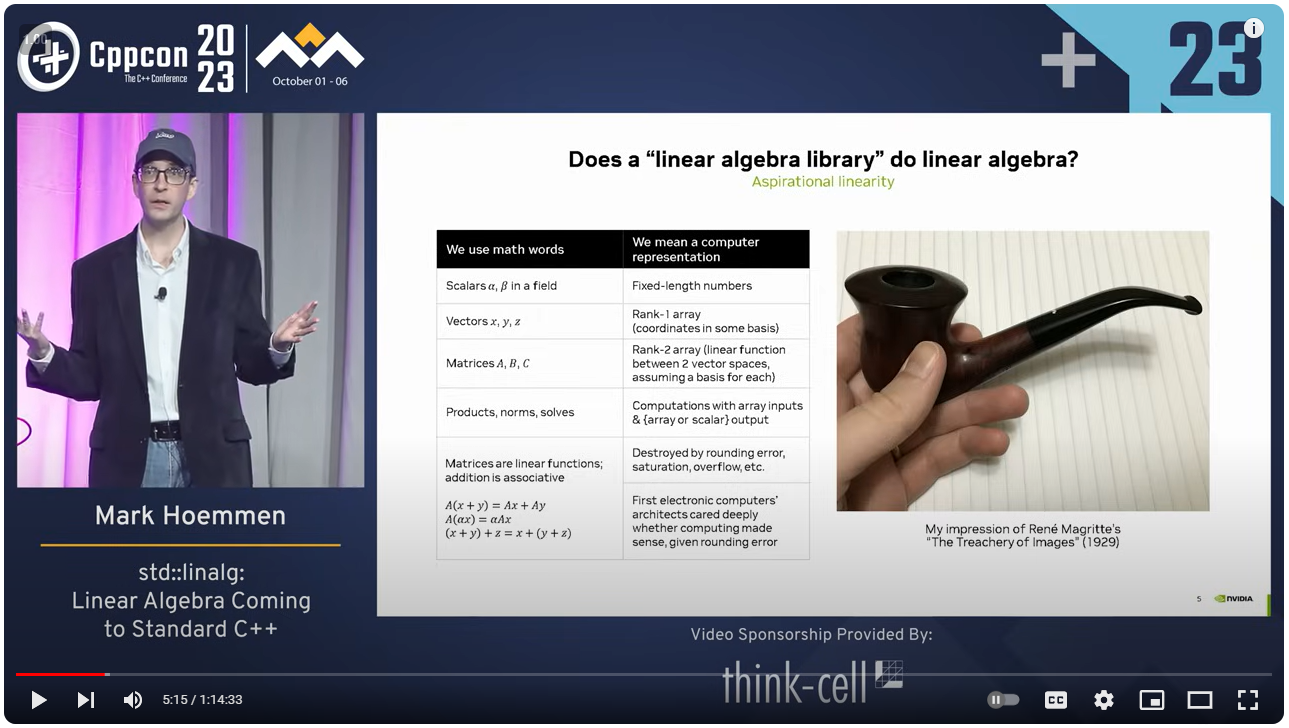 Registration is now open for CppCon 2024! The conference starts on September 15 and will be held
Registration is now open for CppCon 2024! The conference starts on September 15 and will be held 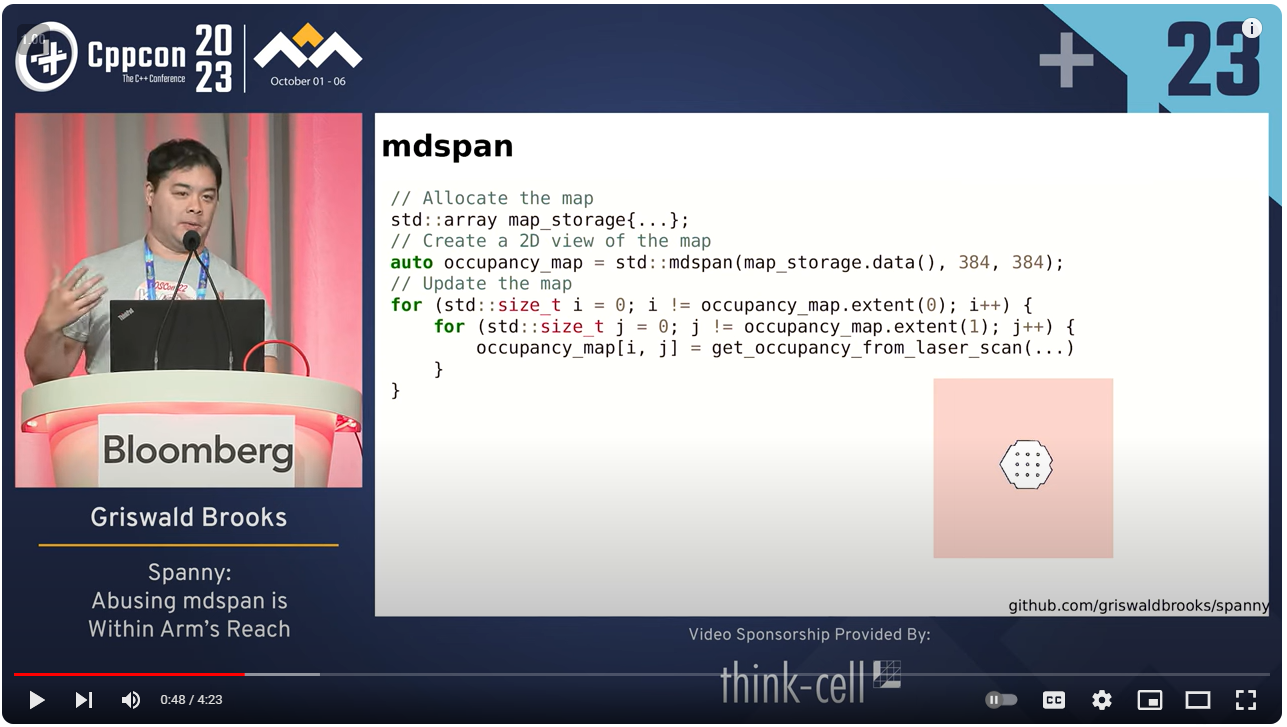 Registration is now open for CppCon 2024! The conference starts on September 15 and will be held
Registration is now open for CppCon 2024! The conference starts on September 15 and will be held  Last time, we saw how to provide formatting for a simple user-defined class. Spencer Collyer builds on this, showing how to write a formatter for more complicated types.
Last time, we saw how to provide formatting for a simple user-defined class. Spencer Collyer builds on this, showing how to write a formatter for more complicated types. The conclusion of the last post was that we need to change something in our models: maybe std::vector should use a different strategy when erasing elements; maybe types like std::tuple<int &> should not be allowed to be stored in a vector; maybe Qt should not be using memmove when erasing objects of trivially relocatable type (but it can still optimize the reallocation of a vector); maybe Qt’s definition of trivial relocability does not match ours, and we need to fix our definitions. In this post we will explore these possibilities and reach some conclusions.
The conclusion of the last post was that we need to change something in our models: maybe std::vector should use a different strategy when erasing elements; maybe types like std::tuple<int &> should not be allowed to be stored in a vector; maybe Qt should not be using memmove when erasing objects of trivially relocatable type (but it can still optimize the reallocation of a vector); maybe Qt’s definition of trivial relocability does not match ours, and we need to fix our definitions. In this post we will explore these possibilities and reach some conclusions.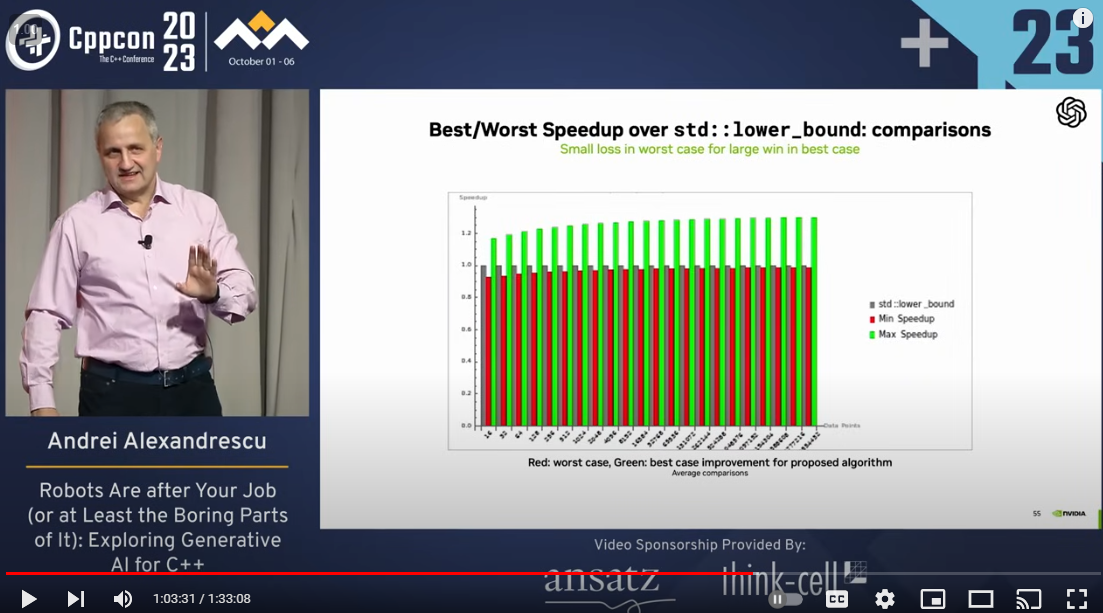 Registration is now open for CppCon 2024! The conference starts on September 15 and will be held
Registration is now open for CppCon 2024! The conference starts on September 15 and will be held 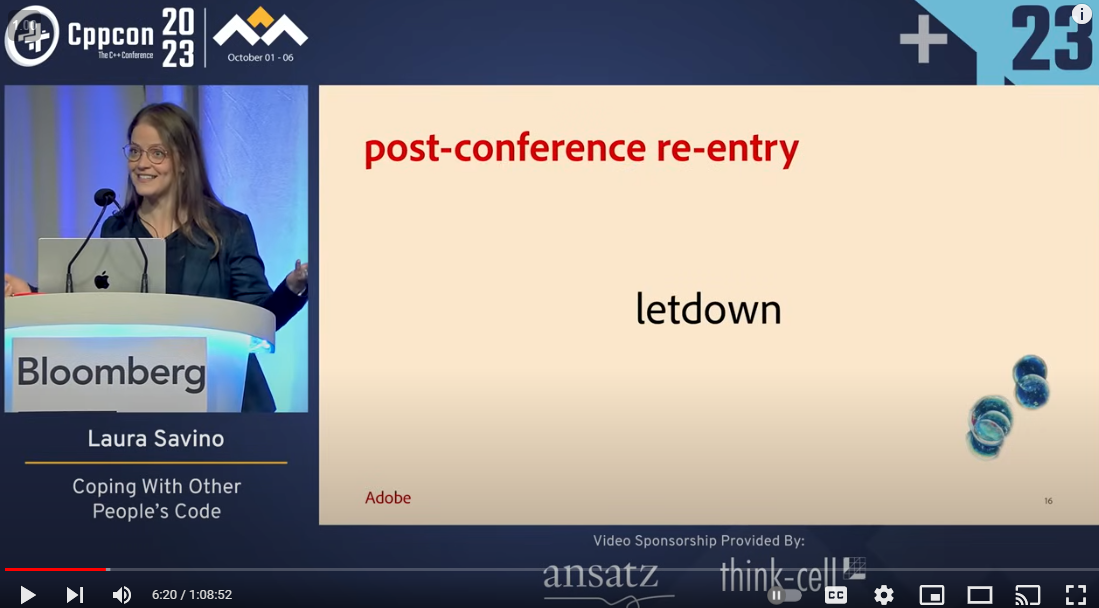 Registration is now open for CppCon 2024! The conference starts on September 15 and will be held
Registration is now open for CppCon 2024! The conference starts on September 15 and will be held 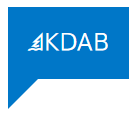 In the last post of this series we started exploring how to erase an element from the middle of a vector.
In the last post of this series we started exploring how to erase an element from the middle of a vector.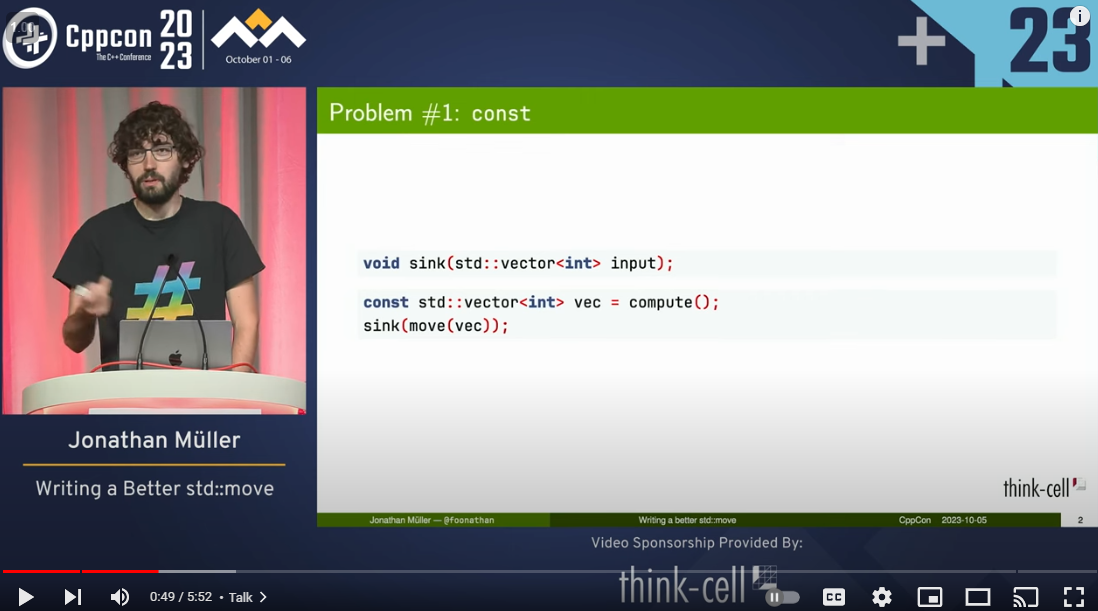 Registration is now open for CppCon 2024! The conference starts on September 15 and will be held
Registration is now open for CppCon 2024! The conference starts on September 15 and will be held